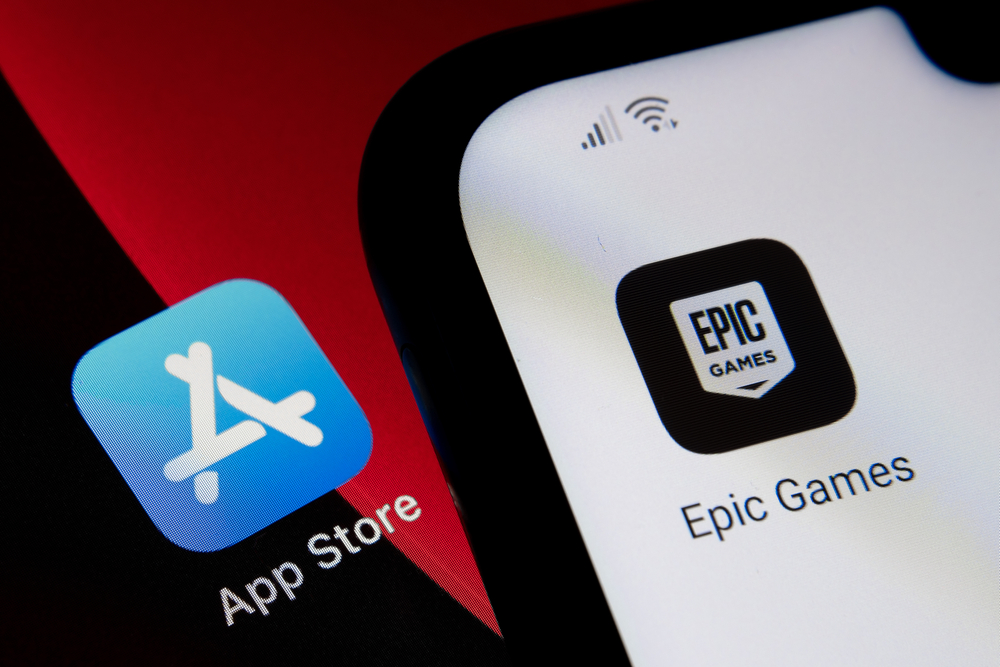US District Judge Yvonne Gonzalez Rogers delivered the final judgment in Epic Games v Apple on September 10. It should come into force on December 9th.
Court decision on microtransactions
According to the court order, Apple has no right to prohibit developers from leaving links to alternative payment systems in their applications and notifying users about them. According to the judge, this App Store rule violates California’s antitrust laws and needs to be changed.

This is not just about permission to mention payment systems, but about direct links to third-party services outside the Apple store, where you can make a transaction.
Apparently, this will allow all app creators to replace in-app payments with other systems where transfers can be made via Apple Pay. As noted by lawyers, this does not mean that developers will be able to completely bypass the commission: a percentage of such transactions will still go to Apple.
App Store policies and restrictions regarding, for example, subscription fees and refunds, will not apply to third-party payments. Whether such conditions will increase the likelihood of fraud is currently unclear, says DTF.
Other regulations
- Alternative payments is the only clause on which the court sided with Epic Games. 9 out of 10 points were won by Apple, and the company was not recognized as a monopoly.
The court cannot definitively rule that Apple is a monopoly, either under federal antitrust or state law. However, in the course of the proceedings, it became clear that Apple did indeed take actions deemed anti-competitive in California.
Yvonne Gonzales Rogers
Judge for the Northern District of California
- The court agreed with Apple’s claims that Epic Games had violated the terms of the agreement. The arguments of representatives of Epic were called “too general”, and now the developers must pay appropriate compensation.
- Gonzales Rogers acknowledged that more and more companies consider the App Store commissions too high. However, this does not mean that the developers are free to violate the terms of an already concluded agreement.
- Store owners are not required to restore Epic Games accounts in the App Store, as such restrictive measures are part of the original agreement between the companies.
- The court disagreed with either Apple or Epic on the specific definition of the market in which the App Store operates – such a market was recognized as “digital mobile money transactions in games.”
Epic Games has structured its lawsuit to provide evidence that Apple is not competing with anyone; it is a sole monopoly. Apple, in turn, argued that the competitive landscape is the digital video game market as a whole, in which it competes seriously with Epic. […] The court disagrees with the relevant market definitions from both parties.
Yvonne Gonzales Rogers
Judge for the Northern District of California
Reaction of the parties
- Apple said that by its decision the court “confirmed what we already knew.” Apparently, the company was ready for such a decision, even taking into account the loss on one of the points.
The court found that “success is not illegal.” Apple faces fierce competition in every industry we do business in. And we believe that users and developers choose us because our products and services are the best in the world.
We intend to continue to ensure that the App Store is a safe and trusted platform that supports a thriving developer community and where the rules apply equally to everyone.
from Apple statement
- Epic Games CEO Tim Sweeney responded by tweeting his disagreement with the court’s position and emphasizing that his company “will continue to fight.”
- Apparently, the return of Fortnite to the App Store is still in question – even under the new conditions, ntes NIXsolutions.
Today’s court decision is not a victory. Not for developers, not for consumers. Epic stands for fair competition across a variety of microtransaction modes and app stores for billions of users.
Fortnite will only return to the App Store on iOS if Epic is able to offer in-app payment methods that compete with Apple’s systems on the platform and make consumers save on it.
Tim Sweeney
CEO of Epic Games
- Later, Epic representatives confirmed to The Verge that the company was not satisfied with the court’s decision and was going to challenge it.
The conflict between Epic Games and Apple began in the summer of 2020. After the Fortnite developers added the ability to buy in-game currency through their own system to the mobile version of the game, the App Store administration removed the Battle Royale from the store for violating the rules, and Epic filed a lawsuit against Apple.
The proceedings went on during May 2021. Both during the meetings themselves and after them, various documents related to the case appeared on the network – often they disclosed details of agreements between different parties with their partners.
